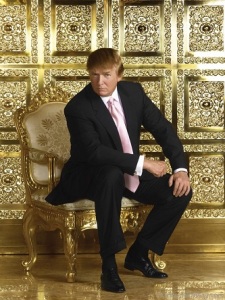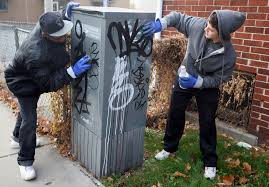Ordinary Americans have been getting the shaft. There has been no economic recovery during President Obama’s nearly two terms in office. Not for the majority of us. To the contrary. According to the U.S. Census Bureau, 80 percent of Americans have seen their income sink steadily since the 2008 economic crisis.
One thing I am grateful for: When I write “ordinary Americans,” I am in that category. And when I write “us,” that pronoun includes 255 million other people making less than $100,000 a year. We are not supposed to have a class system in this society. And those of us who make less than $100 grand are at least loyal by default to that 240-year-old ideal. The other 20 percent are moving us backward, in the direction of an aristocracy our Founding Fathers rejected. And the top one percent? Is it a misnomer to call them Americans anymore? What true American would flout his country’s principles so flagrantly?
I imagine they think of themselves as international. So many of them hide their money overseas and trade in foreign currencies and invest in emerging markets. Maybe being American in character as well as in name doesn’t mean as much when you reach a certain level of wealth.
Immigrants risk everything for the chance to live a decent life in a free society. That’s what our revolutionary forebears sought, too. And we call them “illegal” and turn up our noses, as if we have nothing in common. But they are more American in spirit than the people manipulating our economy and our elections and writing their names in gold on the tops of tall buildings.
I mean, when you use your name to delineate your class you make it despicable, whether you’re spitting at the rest of us from below or from above. I know that a few creative individuals have elevated graffiti to an art form. But in most cases it’s still just gross.


Our Revolutionary War freed us from King George and the English aristocracy. And we had the genius and courage to imagine something new for ourselves. We embarked on a noble experiment — the first of its kind in the modern age of nations. To see if a classless, self-governing society of free people is possible in this world.
I still believe in the importance of that experiment. I hope you do to.
Ever since that time, though, the aristocracy has been trying to sabotage the experiment and re-establish itself on this continent. They have been trying, in simple fact, to undo our Revolutionary War. What kind of people are these, who would dedicate their energy to destroying just about the best thing humanity has ever tried to do? And why do the rest of us put up with it?
Don’t get me wrong. I believe in economic diversity. Homogeneity is boring. Differences are stimulating. The pursuit of happiness isn’t even possible without different options to chase down, or without the possibility of uncommon success or failure.
Riches are something we should all be allowed to shoot for, if we decide happiness might be hiding there. And the poor will always be with us, as Jesus said. We’re not going to get rid of wealth disparity. And that’s a good thing. As long as churn exists in the system and people are free to pursue happiness by changing direction and trekking along different avenues, including the path to wealth or the asceticism of poverty.
That being said, our Capitalist economy has become a threat to our Democracy. These two organizing principles, Capitalism and Democracy, which have lived together like brothers for years, are now so radically opposed that one might destroy the other. And some of the differences between people that would ordinarily be tolerated — even embraced — have become instead alignments in a conflict of the highest possible stakes.
At this point in our history, if you are rich you don’t represent an example of achievement others may follow. You represent oppression. Because you are imposing unfair limits on your fellow citizens’ ability to pursue happiness.
That wasn’t always true. There was a time in this country when a person could make a fortune, lose it, then make it back again — several times over, according to the old stories. The heights of wealth and the depths of poverty were closer then. The distance between the wealthiest Americans and the poorest was huge but it was only lake huge. You could see across it. Now, there are people who can buy whole countries, and whose money could literally lasso the moon if you strung all their hundred dollar bills together.
Money was looser in the previous two centuries, and it wasn’t as outrageous to be outrageously rich. Because the perception that anyone could get rich had a basis in reality. With brains, willpower and luck it was possible to move up the economic ladder. And it was possible to move in the other direction and lose one’s fortune. There was mobility. Churn.
But since the rich decided to kick out the rungs, securing their positions and cementing ours, they have become traitors to the American character. They might as well wear the British uniforms of the soldiers of King George III.
Speaking of King George, who does this remind you of?
The Census report confirmed what we all already know. I had this conversation many times when I was a cab driver.
Driving around, I notice things. Like construction. New buildings going up. Stalled projects becoming active again. It means banks and developers are investing in enterprise.
Some of the more telling economic indicators are new hotels and banks.
A couple of years ago, I remarked to one of my passengers on a new bank building going up. And it started a conversation. I asked for his opinion about our uncertain economic recovery.
He said the people he knows who are doing well are doing very well. Better than ever. And the people he knows who aren’t doing well are doing worse than he has seen in his lifetime.
That about sums it up.
There had been talk on the news around that time about possible class warfare. The rich were apparently worried. And they were accusing progressives, liberals, Democrats and Obama of stirring up strife among the classes and trying to create demand among the masses for a redistribution of wealth.
Of course, now we can look back on that with the realization that it was the conservatives and Republicans pulling all the money to one side of the table that was the cause of the trouble. And isn’t that always the way? People who are doing bad things in secret suspect others of doing those things. And people who suspect others of doing bad things in secret start doing those things. Its a vicious circle of secrecy and suspicion and festering guilt. They were manipulating the system, buying up judges and politicians, consolidating their wealth and power and increasing the gulf between the classes in preparation for a conflict between the classes they were instigating by their actions.
Yes, you can have rich people and poor people without having a class system. Just imagine a rich guy who used to be poor and may be again one day. Or a poor person who will be rich awhile and end up somewhere in the middle. Neither of those people will probably think of themselves as one thing, rich or poor. They will think of themselves as having lead rich lives covering a range of conditions that average out somewhere in the middle. But, most of all, they will think of themselves in a way that connects them to everyone else. Not as rich people. Or as poor people. But as people. Perhaps even happy people.
We need that connection to each other. And we are losing it.
A classless society is possible when there is churn in the system. It’s only when you dam up the system, holding back all the water on one side and emptying out narrow canyon on the other that a class system is established. It is the rigidity of the system that creates the classes. Different people being wealthy and poor at different times is American. The same people being wealthy and poor at all times is class.
To finish up about the conversation I was having in the back of the cab, the passenger and I wondered if there was anything to worry about in all this talk about strife among the classes and the rich feeling threatened.
I said we may be approaching a day when people leave their nice cars locked up in the garage and buy crappy old cars to get around town in. And the passenger said something that I have always thought had a touch of poetry in it.
I have thought about it and tried to bring out its poetic potential many times and make it gleam. But so far I haven’t been able to improve on his simple phrase: “Look broke.”

